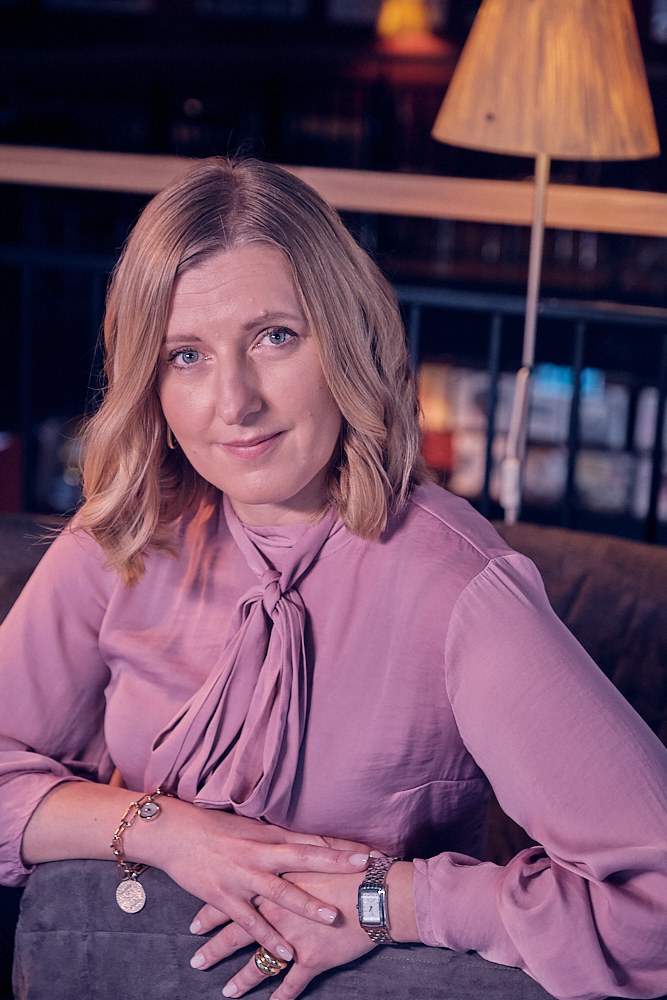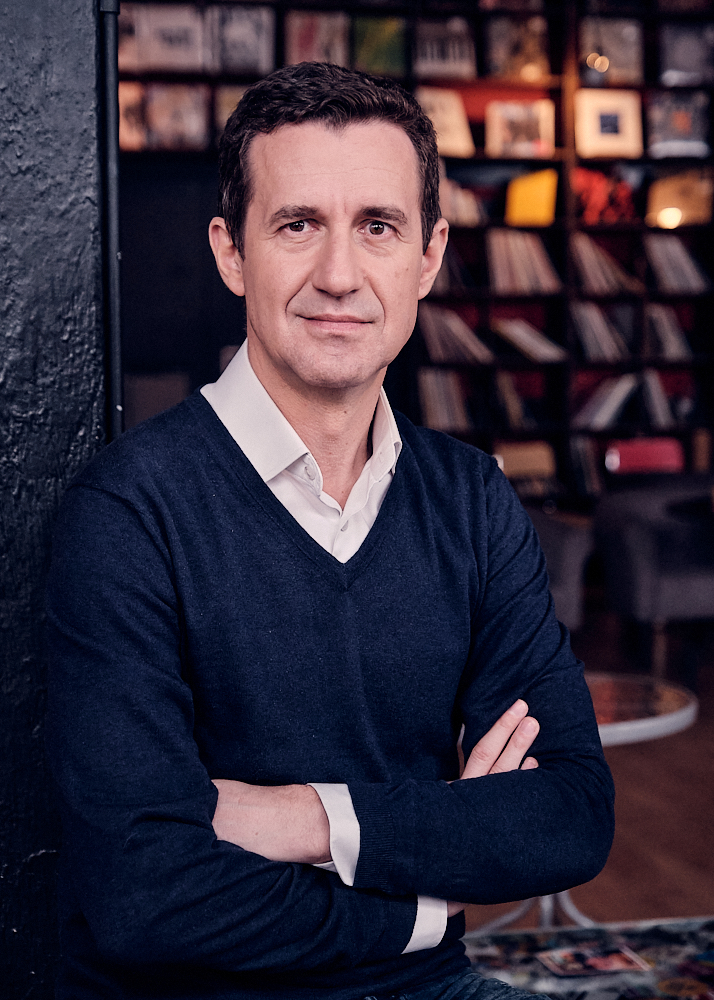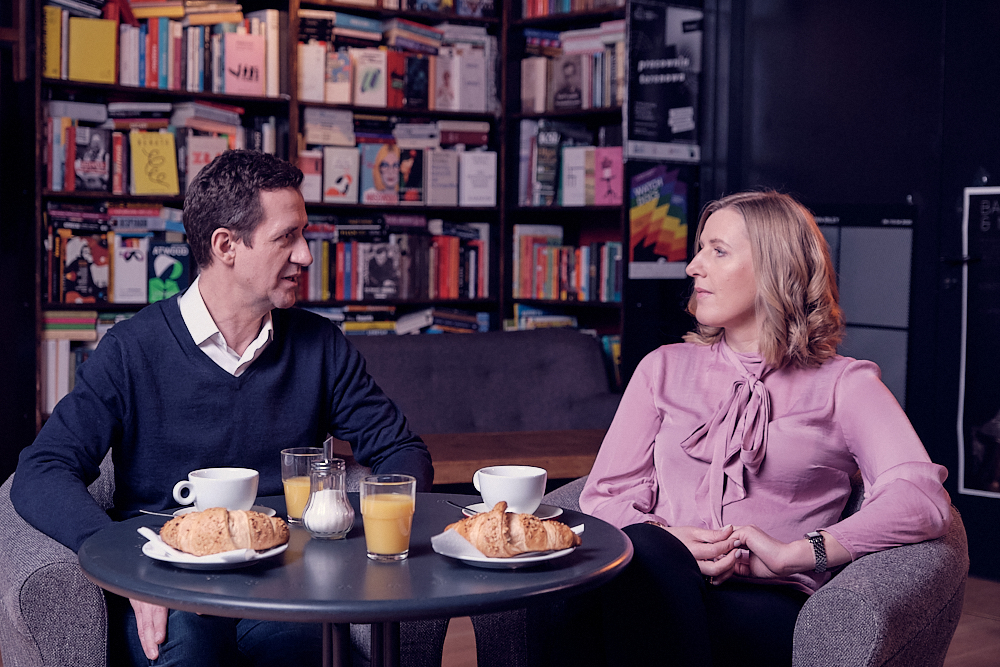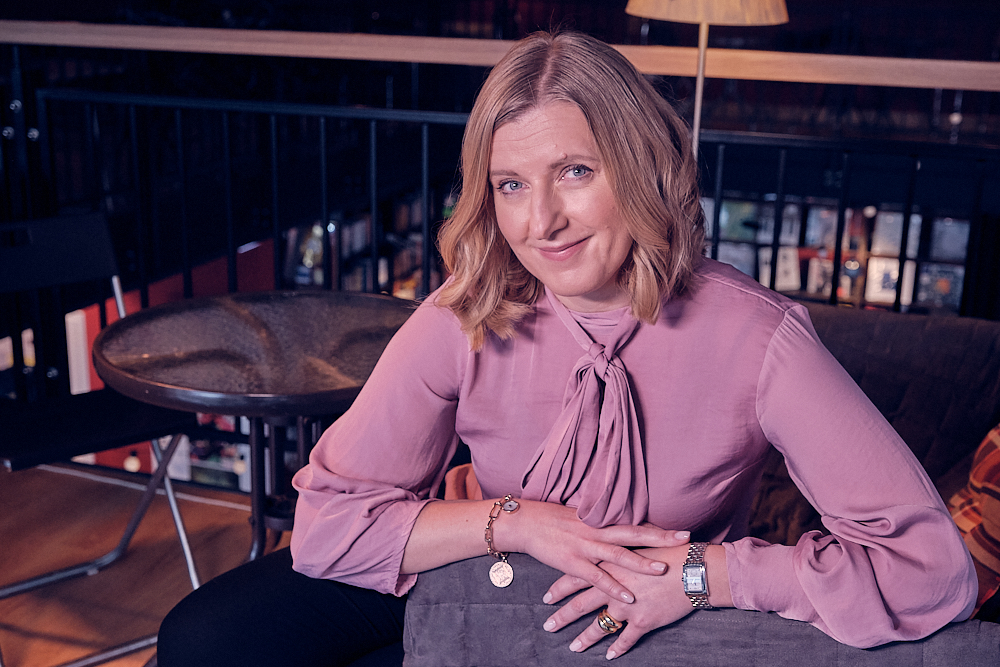Izabela Głodek, Marketing Director and Board Member at The Coca-Cola Company, was interviewed by Piotr Piętka, co-CEO Publicis Groupe Poland.
Piotr Piętka: What could marketers learn from the ongoing social crisis? Will there be permanent changes in marketing in connection with the crisis, and if so, what changes?
Izabela Głodek: The crisis has made everyone aware that the so-called modern channels are now becoming strategic communication methods. I mean not only social media, but also blogs, pages for reviews, price comparisons and many others. During the quarantine, billions of people around the world used the Internet to search for information about the ongoing pandemic, share their opinions and views, and still many people have fears of direct contact with others. I therefore believe that brands face the challenge of facing a “new reality” where the role of the brand in the society will become even more important than before. The second no less important observation is the incredible acceleration of e-commerce, which is now becoming an equal sales channel. Both the challenges of identifying channels and the “new” e-commerce require marketers to take a verified approach to the visibility of the brand, which should, not only be “loveable”, but also “shoppable” in the new reality. This, in turn, entails the need to rethink or even re-invent the strategy and creation. I think that there will be a lot of dynamic changes connected with it.
PP: Coca-Cola’s global decision to stop advertising activities for the period of a pandemic has been widely echoed in the marketing industry, can you share a reflection with us on how you see the steps taken by your company from the perspective of several months?
IG:Together with the entire team we are proud that Coca-Cola was one of the first companies to react in this way. In this extremely difficult and uncertain situation in which the world finds itself, we have decided to focus on actions, not words. Our priority was and is to ensure the safety of our employees and the community. As the Coca-Cola Company, our bottlers and the Coca-Cola Foundation in Atlanta, we have contributed a total of more than USD 120 million to help fight COVID-19 in affected communities around the world. Our support focused mainly on providing protective equipment and beverages to healthcare workers and food suppliers providing supplies to those most in need. In Poland, from the very beginning of the COVID-19 pandemic, we have been actively involved in the fight against its effects on both Polish catering and medical workers in Poland and the Baltic States. We have donated our beverages and water to dozens of hospitals all over the country, paramedics and uniformed services, nursing homes, social assistance homes, and food banks, and we were one of the first companies to join the WOŚP Intervention Fund, thanks to which more than 157 cardiac monitors supporting the treatment of coronavirus-infected patients have been sent to hospitals. The period of the pandemic particularly strongly affected one of the most important distribution channels of our brand’s products, i.e. catering establishments. Therefore, already in the first weeks of the pandemic we created a plan of immediate assistance, which included, among others, support in maintaining the financial liquidity of the catering establishments, providing nearly 750 thousand beverages attached to take-away orders, or free webinars, which allow entrepreneurs to acquire the necessary legal or marketing knowledge so that they can return to their former condition even faster. Coca-Cola’s activities reach nearly 5,000 catering establishments all over Poland! In total, we allocated PLN 7.5 million to help fight the effects of the pandemic.

Izabela Głodek, Marketing Director and Board Member at The Coca-Cola Company
PP: It seems that local brands, as they had greater flexibility in making marketing decisions, could benefit from image gains if they got involved in contextual activities related to the pandemic and new consumer attitudes, do you think they took advantage of this opportunity?
IG: The crisis is a threat, but also an opportunity, and indeed there are brands that have taken advantage of this opportunity during the pandemic. Paradoxically, the retail industry reacted the fastest, launching the entire spectrum of services so far unavailable. An example of a rapid changeover to new opportunities is the FMCG industry’s use of the click & collect service, which was launched and tested by e.g. Lidl, Kaufland or Stokrotka. Biedronka, on the other hand, started cooperation with the Glovo application, which delivers shopping to your door in one hour. Żabka, in turn, not only launched the click & collect service and home delivery, but also introduced new solutions in the application for franchisees. Frappka significantly facilitates their shop, assortment and delivery management, which allows them to flexibly and quickly adapt e.g. the assortment to customers’ needs. The pandemic practically overnight forced the introduction of solutions, which at the beginning of this year were probably only in the sphere of long-term plans and we should expect that for the sake of convenience they will stay with us.
PP: What is the current role of marketing in the development of a company and what should it be?
IG: In recent years the role and importance of the marketing department in the organization has changed a lot and is still undergoing transformation. Until recently, the main responsibility of a CMO was to take care of brand communication. They were the focus of attention, and marketing experts spent most of their time creating the best campaigns possible. A new generation of consumers, changing trends, the development of new technologies, in short – the constant change that brands have to keep up with, forced a change of direction – today it is the consumer and not the brand that is in the marketing center of the universe. Consumer orientation and continual product customization and digital transformation are the most important tasks facing marketing today. The need to put the consumer at the heart of the business strategy is also connected with greater responsibility for business growth, and this means that a marketing director must not only be the leader of his area, but also the strategic leader of the business growth of the entire company. This will become even more important in the future because the role of marketing extends to all areas of the company’s operations: from introducing innovations and strategies of responsible and culturally important brands, through the entire consumer path and use of data, to what is most important for the company, i.e. building the value of a given category or brand. The time when a good product with good advertising and a nice logo was enough is long gone. Today, in order to meet the expectations of an increasingly demanding and conscious consumer, brands must carry more value than the product itself, have a clearly defined purpose and the role they want to play in society. Only in this way will they be able to attract new generations for whom experience is more important than brand identity.
PP: How should the effectiveness of marketing activities be measured?
IG: The changing business environment and the associated uncertainty and consumer demands mean that marketing has an increasing responsibility for real financial results. The challenge is to effectively translate the brand image into concrete business results. On the one hand, we have sales results and return on investment, on the other hand, emotions and the brand image. I believe that the role of marketing is to build a balance between these two areas: the brand must develop in each of these dimensions, and in practice this means that marketing investments must be clearly linked to the profit made by the company. We win when marketing strategies build value not only for the company, but above all for the consumer and the communities in which they operate.
PP: Should the CMO be responsible for the entire consumer experience path with the brand and company?
IG: Most definitely. The division into shoppers and consumers is a thing of the past. Of course, the focus of marketers is on the consumer, but technology has fundamentally changed the way we think about it. We work in a data-driven world, so we should strive for the best possible understanding and use it to design a holistic consumer experience path. This will ensure that we deliver the right content, at the right time and to the right person, bearing in mind that today’s brand is what consumers think about it and how they experience it, not what the marketing department thinks. While today’s market organisation must undoubtedly be based on data, we should not forget about creativity. It only takes a few seconds to decide whether or not to get involved in the presented content, so telling interesting stories is still very important.
PP: How do marketing managers currently influence innovation and how should this influence evolve?
IG: When talking about innovation, most people mean products, but I think that innovation is primarily a new approach and new ways of thinking. It’s the consumer and not the brand that matters most today, so the role of marketing in this process is even greater than before. Maintaining trends is no longer enough; the best must set and lead these trends and build category value not only through new products, but mainly through consumer experiences. A director of marketing of the future does not have to be an expert in data analysis or programming, but should know that a team of functional experts will be much more important than before. Marketing is a team sport, so in order to achieve success, you need to invest both in modern technologies and in people who will skilfully use and develop them. Technology, even the best one, cannot replace human creativity, experience and leadership skills. Therefore, one of my first decisions related to the team was to strengthen it and invest in functional leadership competences. It is also extremely important to support and cooperate with external partners – agencies. I believe that this is the only way in which we will be able to respond as an organization to the needs of current and future consumers.
PP: Does a CMO influence the development of technology and digital competences in a company?

Piotr Piętka, co-CEO Publicis Groupe Polska
IG: It is obvious to me that marketing should be the leader of the digital transformation in the company. The question is, does it have the tools to develop new competences? Since a marketing director and their team play a key role in the company’s financial performance and is a driver of innovation, the digital transformation cannot take place without their significant contribution. However, it is quite a challenge to choose the right path for the transformation of the company and its technology partners, as well as to manage organizational change. As leaders, we must remember that our employees need time to change their thinking, and it is our role to encourage and inspire change.
PP: Should CMO competences include business analysis and data use in marketing and sales activities?
IG: Yes, because the ultimate measure of our success is that the consumer chooses our brand. Intuition is important in marketing, but the ability to analyze and use data allows you to draw specific conclusions. Despite the rapid changes in technology and media, which we are not always able to understand, they give us unprecedented opportunities for dialogue with the consumer. A modern marketing director who understands the consumer very well should be a strong partner for the finance, sales and customer service departments, and without an analytical look at the data and results this would not be possible.
PP: What are the challenges for today’s CMOs?
IG: The development of new technologies has changed a lot, so the biggest challenge is “staying up to date”. We need to know what is changing, on which platform. This could be anything from Google announcing a new update that affects free searches to YouTube introducing a new functionality. More importantly, just “staying up to date” is not enough, because you have to be prepared for what lies ahead. An example is voice search, which will revolutionize e-commerce. Another difficult challenge is fragmentation. With so many emerging technologies it is very easy to fall into the trap of fear of losing some opportunities. Therefore, it will be even more important to be able to focus, concentrate, instead of distracting one’s attention on too many details. The saying “less is more” will gain more value than ever. The last, perhaps the biggest challenge facing marketing directors will be to convince the board or CEO to invest in new and untested solutions, incomparable to existing data and results.
PP: Do company presidents understand the importance of marketing activities in building business?
IG: In my career to date I have had and have the privilege of working in organizations where the president was a great support for the marketing department (which I wish all CMOs). I believe that the CEO’s confidence in marketing can be built through the proper reporting of results and a clear and consistent strategy. After all, the CEO is also our consumer, and we need to gain their trust as well.
PP: What is most important in the relationship between the CMO and the CEO in the company?
IG: Mutual trust, which will allow for the long-term building of brands and their values, so that the brand and the business can grow.
PP: What barriers, obstacles to the proper understanding of the role of CMOs by CEOs are we facing today and how can we overcome them?
IG: The impact of digitisation on the world is enormous, and this entails constant changes in the marketing industry. Therefore, patience in building brands is crucial. The pressure to score and seek short-term victories and profits is the biggest barrier marketing directors face. But I believe that investing in the team, challenging the status quo, demolishing internal obstacles and taking risks are important factors that will contribute even more than before to the success of the entire organisation.

That was a pleasure to meet and discuss. Thank you.

